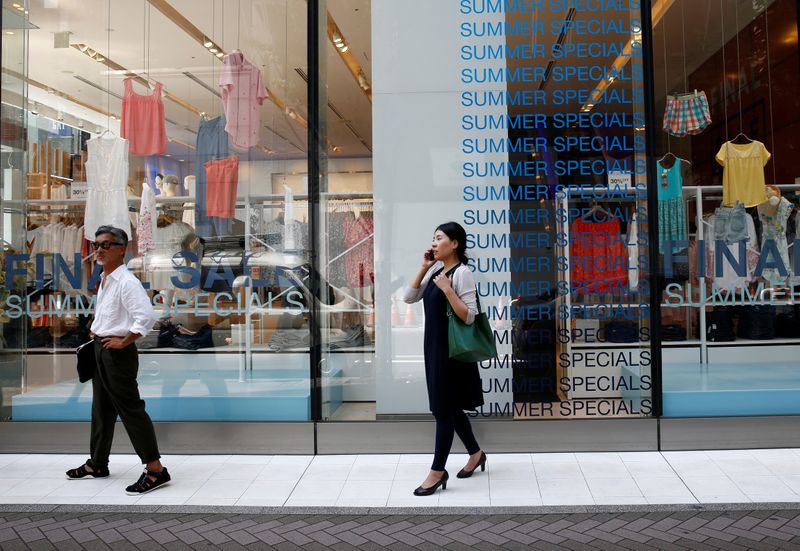TOKYO – Japan’s core consumer prices fell for a second straight month in May, reinforcing deflation expectations and raising the challenge for policymakers battling to revive an economy reeling from the coronavirus pandemic.
The data will likely complicate the Bank of Japan’s job of restoring growth and inflation, with a raft of recent indicators suggesting the nation is in the grip of its worst postwar economic slump.
Several BOJ board members warned that stronger monetary support and closer policy coordination with the government were needed to prevent Japan from returning to deflation, minutes of the bank’s April meeting showed.
“With the pandemic hurting the economy, there’s a good chance Japan may slide into deflation. Downward pressure on prices will likely persist throughout this year,” said Yoshiki Shinke, chief economist at Dai-ichi Life Research Institute.
The nationwide core consumer price index (CPI), which includes oil but excludes volatile fresh food prices, fell 0.2% in May from a year earlier, government data showed on Friday.
That compared with market forecasts of a 0.1% fall and followed a 0.2% drop in April, which was the first year-on-year decline since December 2016.
The BOJ kept policy steady this week after expanding stimulus in March and April. But governor Haruhiko Kuroda conceded that inflation would remain well short of its 2% target for years to come.
The downturn in growth is also likely to have been exacerbated by Japan’s state of emergency in April through late May, which prompted people to stay home and businesses to close.
As businesses re-open after the lifting of lockdown measures, the government raised its economic assessment in June for the first time since 2018.
Japan also lifted all coronavirus-related curbs on domestic travel on Friday, with Prime Minister Shinzo Abe calling on people to go sightseeing or attend events to help the nation’s economy bounce back.
But analysts doubt Japan’s economy can rebound strongly from an expected contraction of more than 20% in the current quarter.
Some BOJ policymakers were concerned that bolder steps are needed to prevent the country from slipping back to sustained period of damaging price declines, the April minutes showed.
“Japan is now facing the risk of deflation, so it’s possible to further enhance coordination between fiscal and monetary policies,” one BOJ board member was quoted as saying.
(Reporting by Kaori Kaneko and Leika Kihara; Editing by Shri Navaratnam and Sam Holmes)























